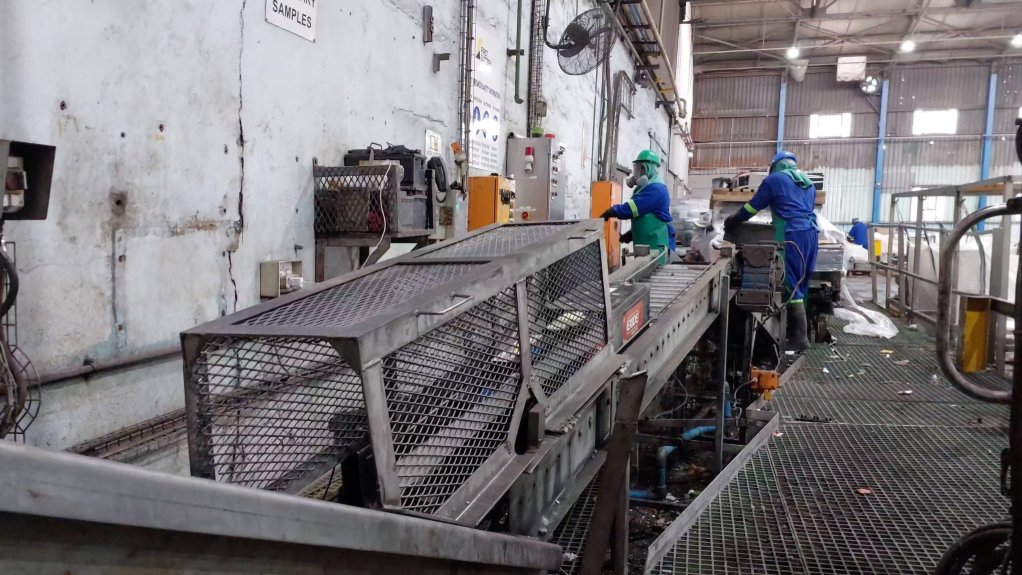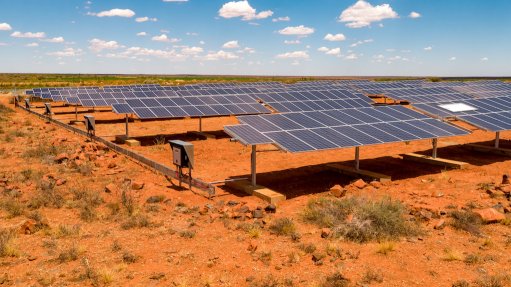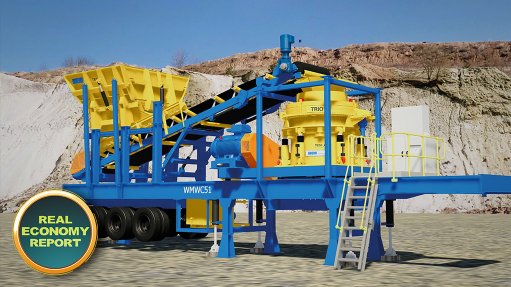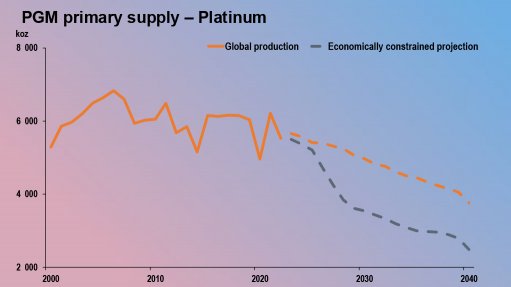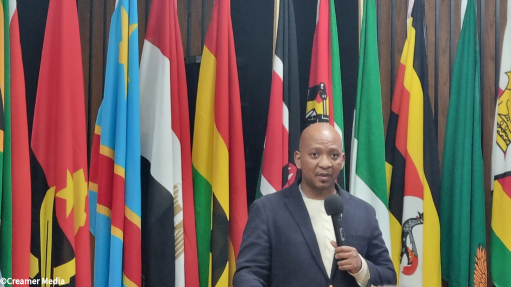First Battery showcases 80 t/d lead-acid battery recycling plant
Automotive and industrial battery manufacturer First Battery on July 17 took media on a tour of its battery recycling facility in Benoni Industrial Sites, in Ekurhuleni, where it recycles 80 t of lead-acid batteries a day.
The facility features advanced technology to efficiently recycle used lead-acid batteries, and includes a battery breaker, an effluent plant for acid treatment, a lead smelter and a plastic reprocessing plant.
The polypropylene plastic that it recovers from the battery housing is converted to pellets that are sent to its battery manufacturing plant in East London, in the Eastern Cape.
Similarly, the lead from the batteries is smelted, refined, checked for quality and processed into ingots that are also sent to its plant in East London.
The company's batteries are 96% recyclable, and while it mainly recycles end-of-life batteries exchanged through its chain of 130 outlets in South Africa, it also recycles batteries produced by other manufacturers.
"Our recycling and the recyclability of our batteries is a big selling point for us. We supply seven of the nine major automotive manufacturers with first-fit batteries, and we are a cradle-to-cradle business," said First Battery marketing and sales director Shane Petersen.
The company manufactured more than 2.2-million batteries a year that were exported to 40 countries worldwide. A lot of the company's strength came from original-equipment manufacturers and the independent aftermarket, he added.
“Our recycling infrastructure is a critical part of our environmental responsibility strategy. By maintaining a closed-loop system, we effectively reduce waste, minimise pollution and ensure the highest quality of recycled materials for new battery production,” said First Battery manufacturing director Charles van Aswegen.
First Battery went to considerable lengths to ensure it was environmentally sustainable and did not harm the environment, noted First Battery production operations manager Tiny van Zyl.
It captures all the water used in the plant, including the acidic water from the recycled batteries, which it then treats and reuses in its industrial processes and sprays it on its roads to reduce dust.
It holds various water management accreditations and is subjected to random sampling checks by the municipality once a month.
Similarly, it had an air emissions licence, which was difficult to obtain and maintain, but it had achieved this owing to considerable emissions abatement equipment in place, he said.
The company's furnaces use gas and oxygen to smelt the lead at about 800 °C. It recycles about 12 000 t/y of lead.
The plant's main purpose is to recycle old automotive batteries back to usable materials.
"We can more or less endlessly recycle the lead and plastic in our batteries into new materials to make new batteries," said Van Zyl.
The batteries enter and are sent to a crusher, with the plastic made into pellets and the lead pieces refined and blended to produce lead alloys for new batteries. The lead is tested by the company's lead laboratory to ensure the correct quality is maintained.
Morever, the company was considering investing in further technology to increase the capacity of the factory, said Petersen.
"This is part of our continuous evolution to produce our lead-acid batteries for use in mining, for surface motive power, such as forklifts and scissor-lifts, and for standby power solutions. We have evolved from a traditional battery producer to a premier provider of advanced energy storage solutions for automotive and industrial sectors," he said.
Further, in addition to capital expenditure (capex) to increase the plant's capacity, First Battery also planned to invest capex to be able to bring in larger batteries into the plant for processing, he added.
"Our five manufacturing facilities are ISO 50001:2018 certified and adhere to the highest international standards for energy management. This certification highlights First Battery’s proactive approach to reducing its environmental footprint and optimising energy use."
Owing to the recycling rate the company is achieving and the fact that lead-acid battery manufacturing can be done sustainably, lead-acid batteries would continue to serve as an energy storage system, with compound annual growth of 3% to 5% expected over the next five to 20 years, Petersen said.
"As global demand for batteries grows and concerns over environmental impact persist, our investment in this essential aspect of their business operations is part of our strategic focus on sustainability and innovation," he said.
Comments
Press Office
Announcements
What's On
Subscribe to improve your user experience...
Option 1 (equivalent of R125 a month):
Receive a weekly copy of Creamer Media's Engineering News & Mining Weekly magazine
(print copy for those in South Africa and e-magazine for those outside of South Africa)
Receive daily email newsletters
Access to full search results
Access archive of magazine back copies
Access to Projects in Progress
Access to ONE Research Report of your choice in PDF format
Option 2 (equivalent of R375 a month):
All benefits from Option 1
PLUS
Access to Creamer Media's Research Channel Africa for ALL Research Reports, in PDF format, on various industrial and mining sectors
including Electricity; Water; Energy Transition; Hydrogen; Roads, Rail and Ports; Coal; Gold; Platinum; Battery Metals; etc.
Already a subscriber?
Forgotten your password?
Receive weekly copy of Creamer Media's Engineering News & Mining Weekly magazine (print copy for those in South Africa and e-magazine for those outside of South Africa)
➕
Recieve daily email newsletters
➕
Access to full search results
➕
Access archive of magazine back copies
➕
Access to Projects in Progress
➕
Access to ONE Research Report of your choice in PDF format
RESEARCH CHANNEL AFRICA
R4500 (equivalent of R375 a month)
SUBSCRIBEAll benefits from Option 1
➕
Access to Creamer Media's Research Channel Africa for ALL Research Reports on various industrial and mining sectors, in PDF format, including on:
Electricity
➕
Water
➕
Energy Transition
➕
Hydrogen
➕
Roads, Rail and Ports
➕
Coal
➕
Gold
➕
Platinum
➕
Battery Metals
➕
etc.
Receive all benefits from Option 1 or Option 2 delivered to numerous people at your company
➕
Multiple User names and Passwords for simultaneous log-ins
➕
Intranet integration access to all in your organisation



